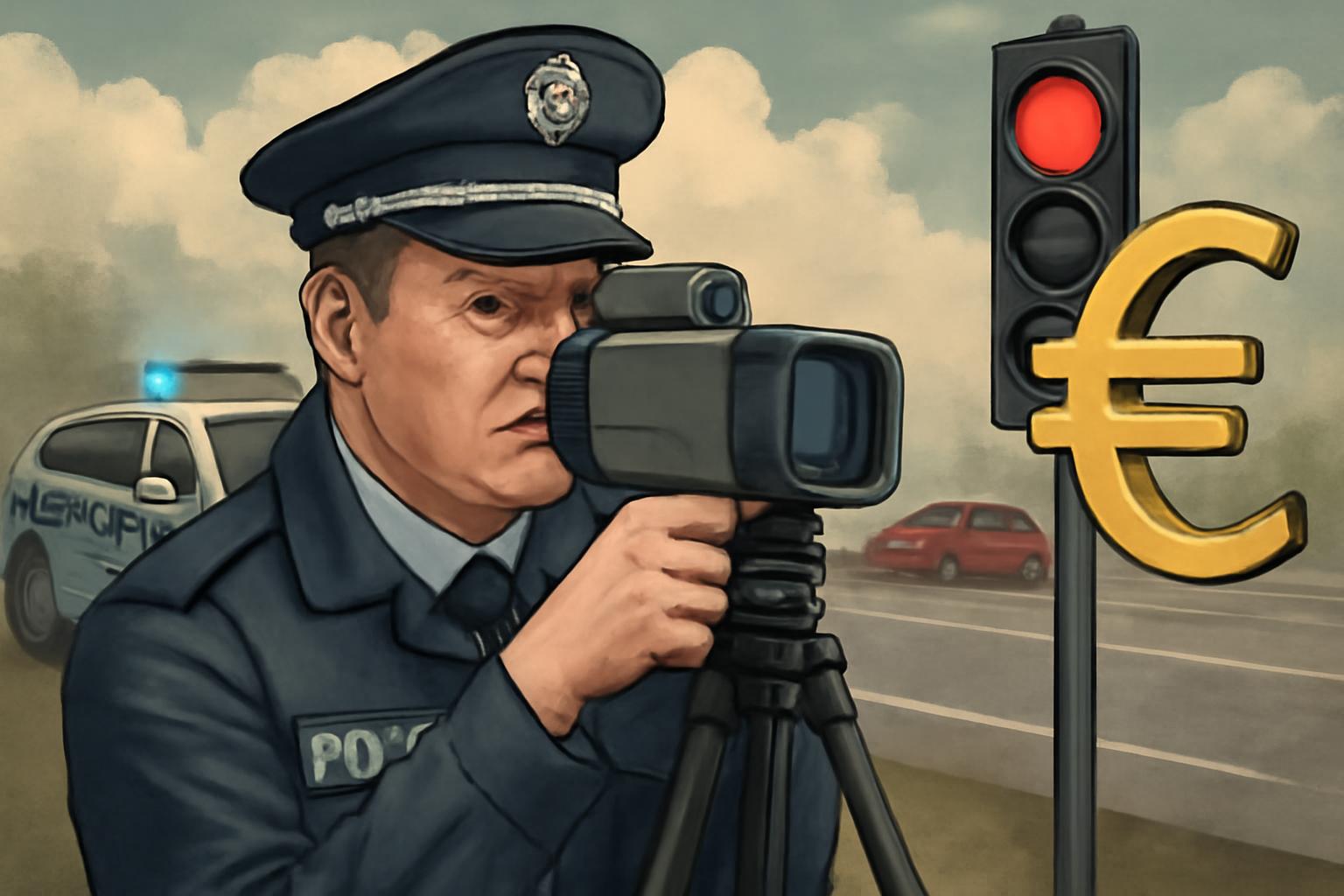Once again, Europe’s constabulary launches itself into action with the so-called “Blitzermarathon”—a term as clumsily Teutonic as the operation itself. For one full week, the guardians of public order will descend upon accident-prone stretches, schools, retirement homes, bus stops and, rather thrillingly for them, construction sites, all in the noble pursuit of snaring those fiendish drivers who dare stray a few kilometers per hour above the prescribed limit. The locations, naturally, are secret—a thrilling cat-and-mouse for the commoner with a modest Volkswagen, if nothing else. This marks Germany’s second such campaign this year, as if the bureaucrats’ zeal for speedometers is only rivalled by their devotion to process. Naturally, not all Länder partake. One wonders if some states have better sense—or simply better things to do.
Meanwhile, fines in Germany have climbed to amounts that might almost register as an irritation for the more privileged among us: 30 euros for a negligeable 10 km/h over the limit (barely enough for a decent bottle of Riesling), escalating to hundreds for more egregious offenses, plus the threat of license points and driving bans. Possession of devices or apps to warn of this state-sanctioned extortion is itself an offense, for the rules must be strictly observed—except, of course, by those who can afford lawyers or, better yet, chauffeurs.
Authorities justify the exercise on the grounds of safety—always an unimpeachable argument, particularly when one seeks to relieve citizens of a few euros. Statistics roll forth: speed is the main culprit in nearly a third of deadly crashes, and surely, decelerating the masses will put them at less risk to themselves and, more importantly, to my cousin’s prized vintage Jaguar.
Now, allow me a moment of candid reflection, as is demanded by my station. The premise of these operations, that they are crafted from deep humanitarian concern, is charming, but let us not be naïve. This is a public relations spectacle, wrapped in the tidy ribbon of accident prevention — and naturally, an excellent way to pad municipal budgets with the loose change of the proletariat. I can only laugh at the notion that the threat of a fine will fundamentally alter the habits of the so-called "repeat offenders." Try telling that to any member of a respectable old family who has ever received a slap on the wrist for “youthful exuberance” behind the wheel of a Porsche.
Were the authorities truly invested in road safety, they would invest in proper driver education and give up this unseemly charade of one-week blitzes. Or better still, install in every automobile an intelligent speed limiter so the less diligent among us do not imperil those whose lives are worth protecting. But the truth is simpler: the campaign provides a fleeting sense of discipline among the masses, who must be reminded periodically who is in charge, conveniently without genuinely changing anything substantial.
As ever, it is the everyday driver—those for whom the loss of 115 euros makes a difference—who feels the sting. The rest of us will continue as we always have: insulated, untroubled, and perhaps, on occasion, watching the flashing cameras in the rear-view mirror with a wry smile, reminded once again of how the world works for those born to rule within it. Safety, indeed.
